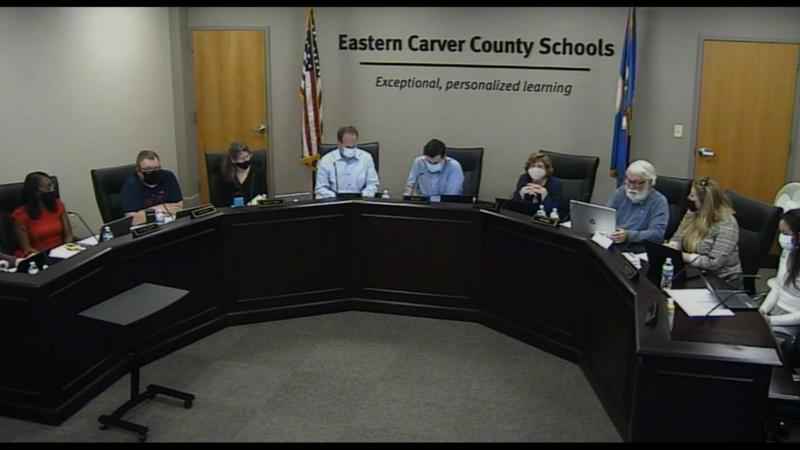Contentious meetings, political polarization raise profile of school board races
[anvplayer video=”5067562″ station=”998122″]
It is an unprecedented year for school board elections in Minnesota.
From Stillwater to Eastern Carver County schools, meetings have been taken over by parents and citizens, some yelling, some fighting, all voicing their concern and frustration over items that are often not even on the agenda.
"The partisan anger and vitriol we see among our politicians has now electrified the school board meetings," said University of Minnesota political science expert Larry Jacobs.
In years past, these elected seats had a mission to focus on the budget, ball games and buses.
But experts say that has now evolved into COVID-19 vaccines, masks and critical race theory.

[KSTP]
"We’ve been really trying to help our boards through this, from the board management side, how to use the gavel, how to reset the meeting, how to get control of the room again, some important elements that we’ve never had to do before," said Kirk Schneidawind, executive director of Minnesota School Boards Association.
Schneidawind says so far this calendar year, 72 school board members around the state have resigned. That’s three times what is seen in a typical year.
He says the exodus could make it more difficult to attract potential school board candidates.
"It is a concern. We’re having some discussions about how we can help our communities reach out and grab board members or potential board members to run in the future," he said.
In some districts, candidates are running in blocks, on the same platform, with similar political views, in hopes of overturning boards.
"It’s quite possible that the school board elections this year are going to transform school boards," Jacobs said. "They are going to have a sudden influx of candidates who are a very liberal or very conservative, even right-wing, and that’s going to change the way in which school boards behave."
Jacobs says the focus needs to get back to students.
"The first step has got to be calm down. The school board meetings are to be able to focus on children. They should not be about these larger fights we’re having in St. Paul or in Washington D.C.," he added.
There are 29 school districts that were originally planning to vote on school board members this election. An additional 36 are having special elections because so many members have resigned.